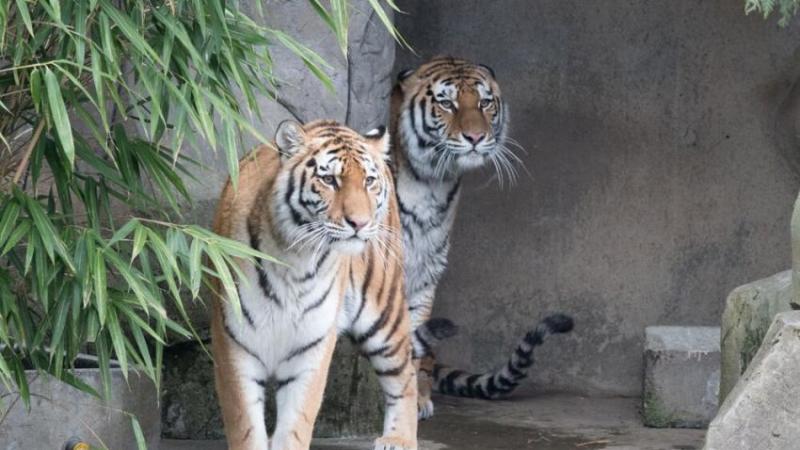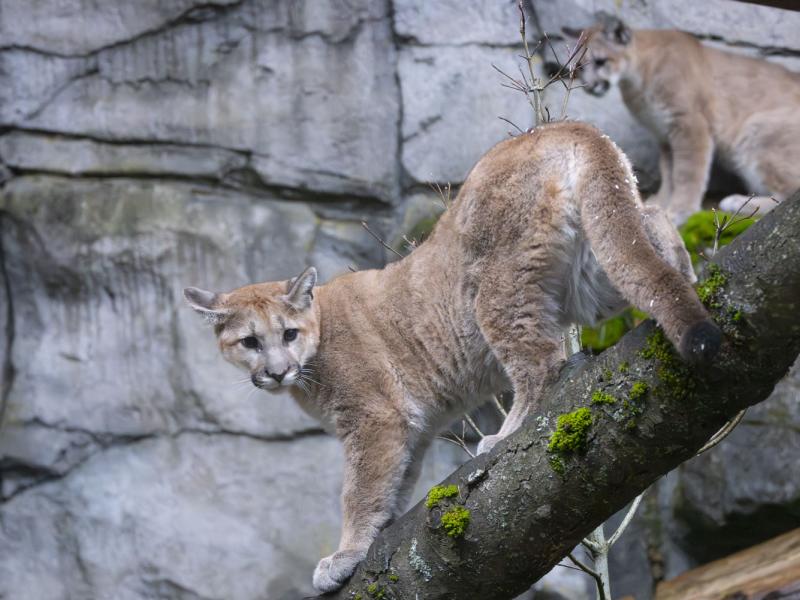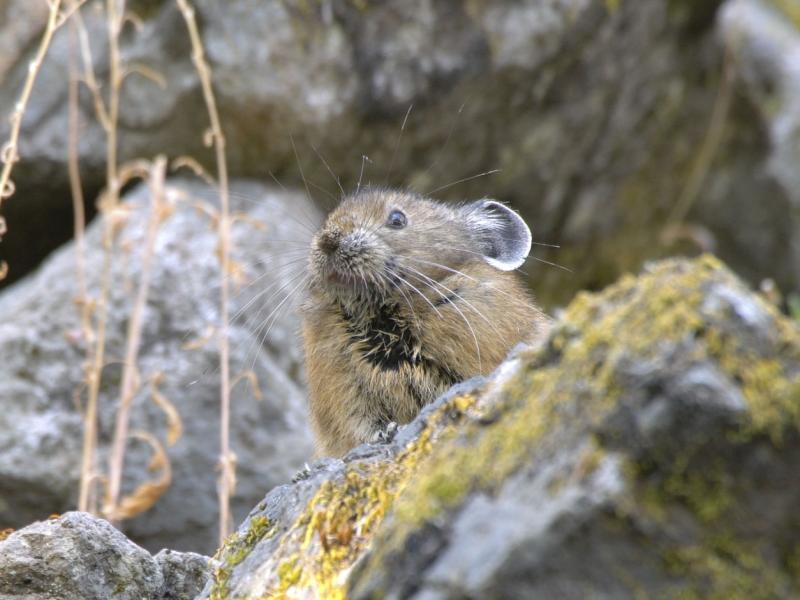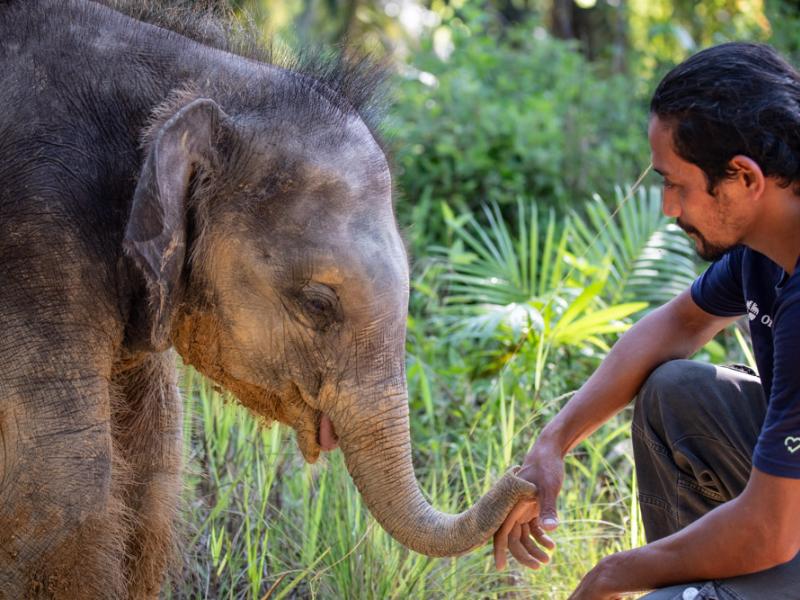
Eloise and Bernadette are 2-year-old tiger siblings from Milwaukee
It's double the fun in Tiger Plaza this week as the Oregon Zoo welcomes two new Amur tigers, sisters Eloise and Bernadette. The 2-year-old big cats are settling in well at their new home, and have already begun venturing outside to explore their surroundings.
"We're very excited to have Eloise and Bernadette here," said Sara Morgan, a keeper in the zoo's Amur tiger area. "They're both really playful and they have such distinct personalities. Bernadette is outgoing and always leading Eloise into new situations or mischief. Eloise is a bit more reserved, but still a lot of fun."
Earlier this month, Morgan traveled to Milwaukee County Zoo in Wisconsin – where Eloise and Bernadette were born —to get to know the tigers and make sure everything was in place for their arrival. She says the easiest way to tell the sisters apart is by their distinct personalities, but Bernadette is a bit larger than Eloise, and her markings are different.
"Tiger stripes are unique to each individual, similar to our fingerprints," Morgan said. "Bernadette has one stripe on her front left paw and Eloise has two."
Amur tigers, the largest of the nine tiger subspecies, are at serious risk of extinction, with only around 500 believed to remain in their native range. In addition to poaching and habitat loss, one of the most pressing threats facing these critically endangered cats is lack of genetic variation. Accredited zoos are participating in coordinated breeding programs to help preserve them.
Eloise and Bernadette came to Oregon on a recommendation from the Species Survival Plan for Amur tigers — a cooperative program among zoos that helps create genetically diverse, self-sustaining populations to guarantee the long-term future of animals. These SSPs also support relevant field projects, research and public education to help prevent animal endangerment and extinction.
More News

Rescued cougar cubs are venturing out
A pair of orphaned cougar cubs, rescued and brought to the zoo by Washington Department of Fish and Wildlife staff in November, have begun exploring their outdoor habitat.April 17, 2025

Zoo seeks pika watchers for summer season
The Oregon Zoo is recruiting volunteers for Cascades Pika Watch.April 15, 2025

Zoo convenes action for imperiled elephants
Sabah government representatives joined conservation NGOs, local communities, palm oil producers, and tourism operators this week in the fight to save the world’s smallest elephants from extinction.April 11, 2025

